Elections will be held two years early in Lesotho as the country heads to the polls to resolve its ongoing political crisis.
Prime Minister Thomas Thabane suspended parliament in June to block a vote of no confidence after losing the support of his deputy Mothetjoa Metsing, leader of one of the main partners in his coalition government.
Now, it seems South Africa’s deputy president Cyril Ramaphosa has helped negotiate a way out of the conflict.
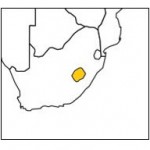
But will this be enough?
As journalist and activist Levi Kabwato notes in this piece, it’s unlikely any party will earn the necessary 61% for an outright majority – which will leave the country with a fragile, hung parliament all over again.
“The pitfall of this, therefore, is that in March or April 2015, Lesotho may actually be back where it is now, plunged deep in a continuation of the current political crisis. So, should Ramaphosa be patting himself on the back after all?â€
Meanwhile, the country’s security situation was only vaguely addressed at the announcement. The failed-quasi-coup at the end of August was heralded by an army attack on police headquarters – and last Tuesday, just two days before the elections announcement, there was another shoot-out between the army and the police.
How will conflict between the army and the police force be resolved? And while we’re at it, just who is in charge of the army – Thabane’s appointee Maaparankoe Mahao or former chief Tlali Kamoli, accused of escaping for the hills with looted weaponry after the non-coup?
#Lesotho “That is a question that does not require an answer,” says Ramaphosa in reply to question on who’s in charge of #military @eNCAnews
— Erin Bates (@erinmarisabates) October 2, 2014
Did Ramaphosa explain who the head of the #Lesotho army is?? How did I completely miss that?!
— Yashini Padayachee (@YashPaddy) October 2, 2014
It’s becoming clear that everyone’s plan in Lesotho is to publicly ignore the LDF power issue. Must be fascinating negotiations in private.
— Charles Fogelman (@charlesfogelman) October 3, 2014
Ramaphosa will reportedly meet with Kamoli in the coming week. 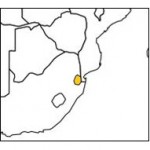
This is what remains of the Nhlabatsi homestead after the demolition @ Nokwane #Swaziland pic.twitter.com/dynYY5jSkF — Mary Pais Da Silva (@Pais_Mary) September 30, 2014
The woman, whose family of 10 is now homeless, was restrained before she could harm herself, reports the Times of Swaziland: “She was heard screaming: “Ngingamane ngife! (It’s better to die!)â€
Southern Africa performed best in the newly released Ibrahim Index of African Governance – with Lesotho, South Africa, the Seychelles and Namibia all in the top 10 (Zimbabwe drags us down considerably at #46).
The rankings are determined by four categories: Safety and Rule of Law, Participation and Human Rights, Sustainable Economic Opportunity, and Human Development. And in fact it was SADC island state Mauritius that took the top spot, with a score of 81.7 out of 100.
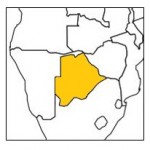
Safety and Rule of Law category and, as this piece notes, is “one of few African countries to transform its mineral wealth into political stability and widespread gains for its citizensâ€.
But as Africa analyst Liesl Louw-Vaudran writes in this piece (which is well worth reading in its entirety), an investor-friendly image internationally does not necessarily translate into squeaky clean behaviour back home.
She writes that civil society organisations dispute the rankings “because the Botswana government was increasingly restricting basic freedoms of expression and was unwilling to engage civil society organisations in the countryâ€.
“In the latest attack on the media in Botswana, the Sunday Standard editor Outsa Mokone was arrested last month and charged with sedition following an article in the newspaper about [president Ian] Khama’s alleged involvement in a car crash.â€
The journalist who wrote that article is now living in exile after receiving information his life was in danger, telling the Daily Maverick‘s Simon Allison: “The intimidation of journalists hasn’t been in the form of physical harassment before, it has always been in the form of using the legal system to silence us. But now it has taken a new form. It’s now getting into physical threats, threats of harm. Right now we have an administration in Botswana that is inward-looking, intolerant to dissent and divergent views.â€
As this editorial on Mmegi Online noted: “Lack of progressive legislations such as freedom of information law, declaration of assets and liabilities laws, state political party funding, and many other laws is a clear sign of deficiency in our democratic setup. Further, lack of accountability by those in power; recent attack on the independent press, and abuse of state resources by the ruling party at the disadvantage of their opponents is a worrying development.â€
All of this in the weeks leading up to the country’s elections at the end of the month? Interesting times.
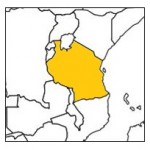
There’s some good and some bad to the new constitution. The gender gap will be narrowed, but birthright citizenship will also go out the window.
But according to Reuters, civil society and opposition politicians say “the version passed on Thursday is too limited and does not establish a federal system that many wantedâ€. They’ve called for nationwide protests.
According to VOA, “Critics say the government appears to be rushing to complete the new constitution. They contend the draft constitution is unlikely to lead to a governing document that represents the will of the people.â€
And the local Guardian quoted a professor involved in the original drafting of the constitution as saying that the version passed last week was quite different to what they’d intended.
“I fear this passed draft constitution cannot lead to a good governing document that represents the will of the people … The proposed constitution is contrary to the targets that we set for ourselves, to get a good constitution.â€
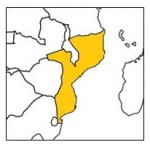
The country goes to the polls on October 15. A SADC observer mission was deployed there last week and campaigning is well under way.
But civil society is warning police to be on guard and unbiased in the coming weeks, after supporters of the ruling party Frelimo attacked the motorcade of another party’s presidential candidate two weeks ago. When his supporters protested in turn, they were violently dispersed by police.
Meanwhile, leader of opposition party Renamo, Afonso Dhlakama, was wooing potential voters with a speech that kind of terrifies: “When I try to serve you, along comes a little machine and provokes me. When I am president, nobody will provoke me and even if they do, nothing will happen to me because I will have all the laws and everything else under control.â€
Meanwhile, Namibia announced last week that it will hold parliamentary and presidential elections on November 28. Namibians overseas will vote on November 14.
And Amal Alamuddin and George Clooney are reportedly/allegedly/gossipingly honeymooning in the Seychelles. If that’s not news, I don’t know what is.


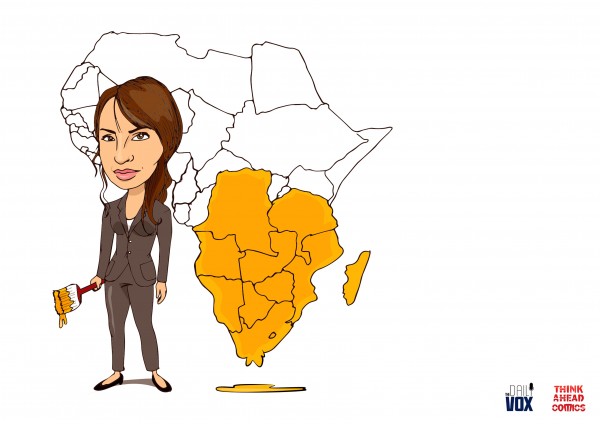
![Lesotho Highlands Water Project [gcis]](http://www.thedailyvox.co.za/wp-content/uploads/2014/06/Lesotho-Highlands-Water-Project-gcis.jpg)







